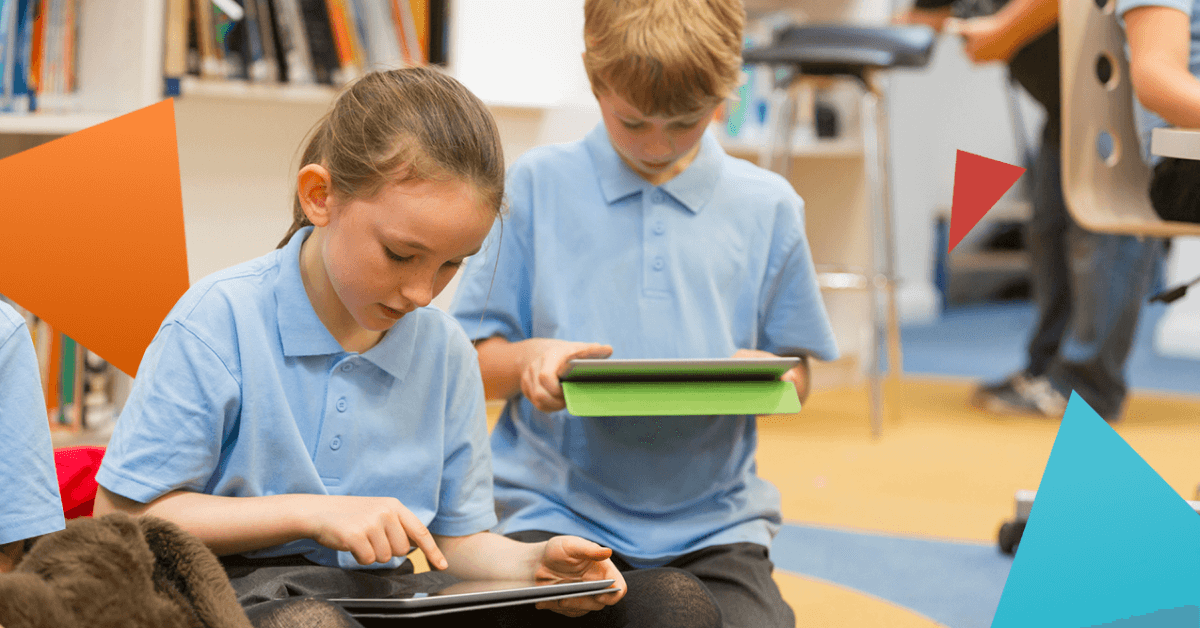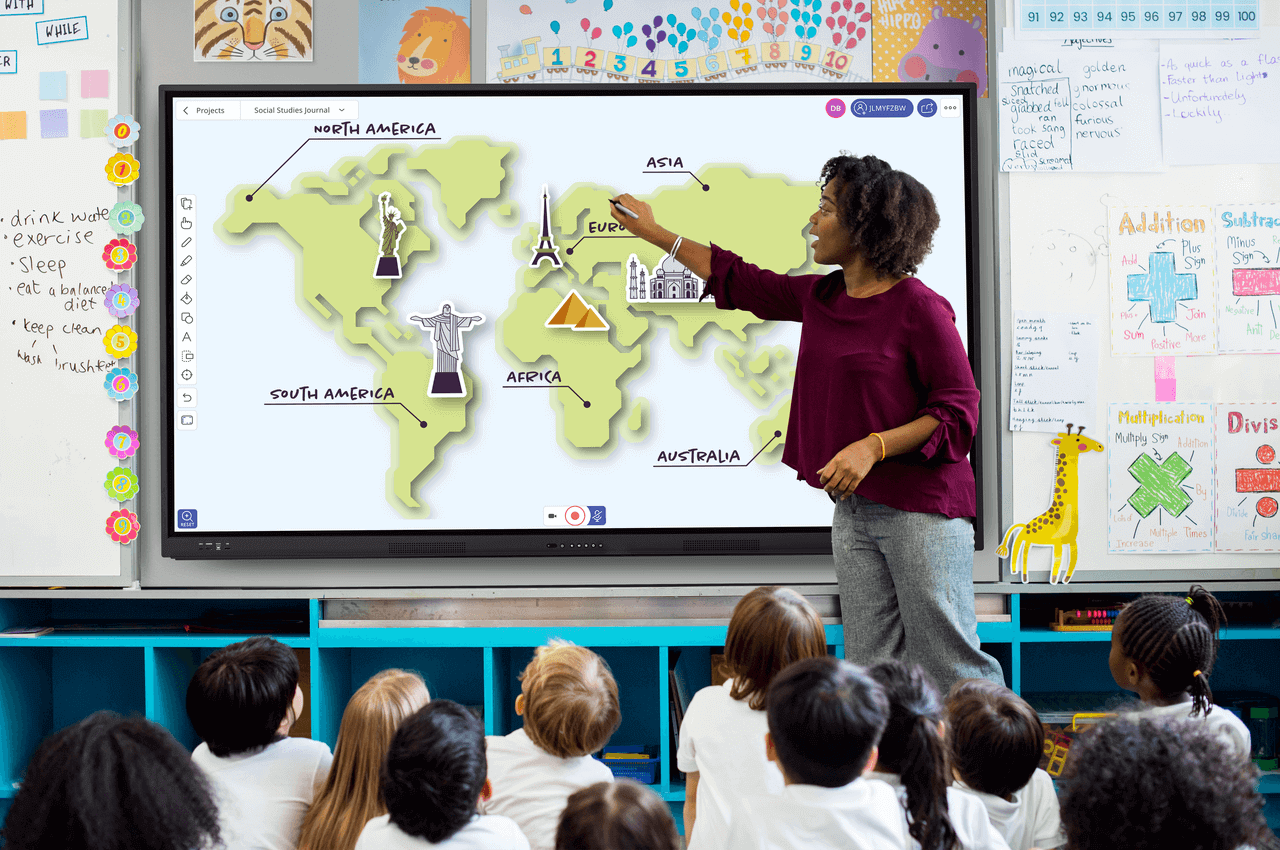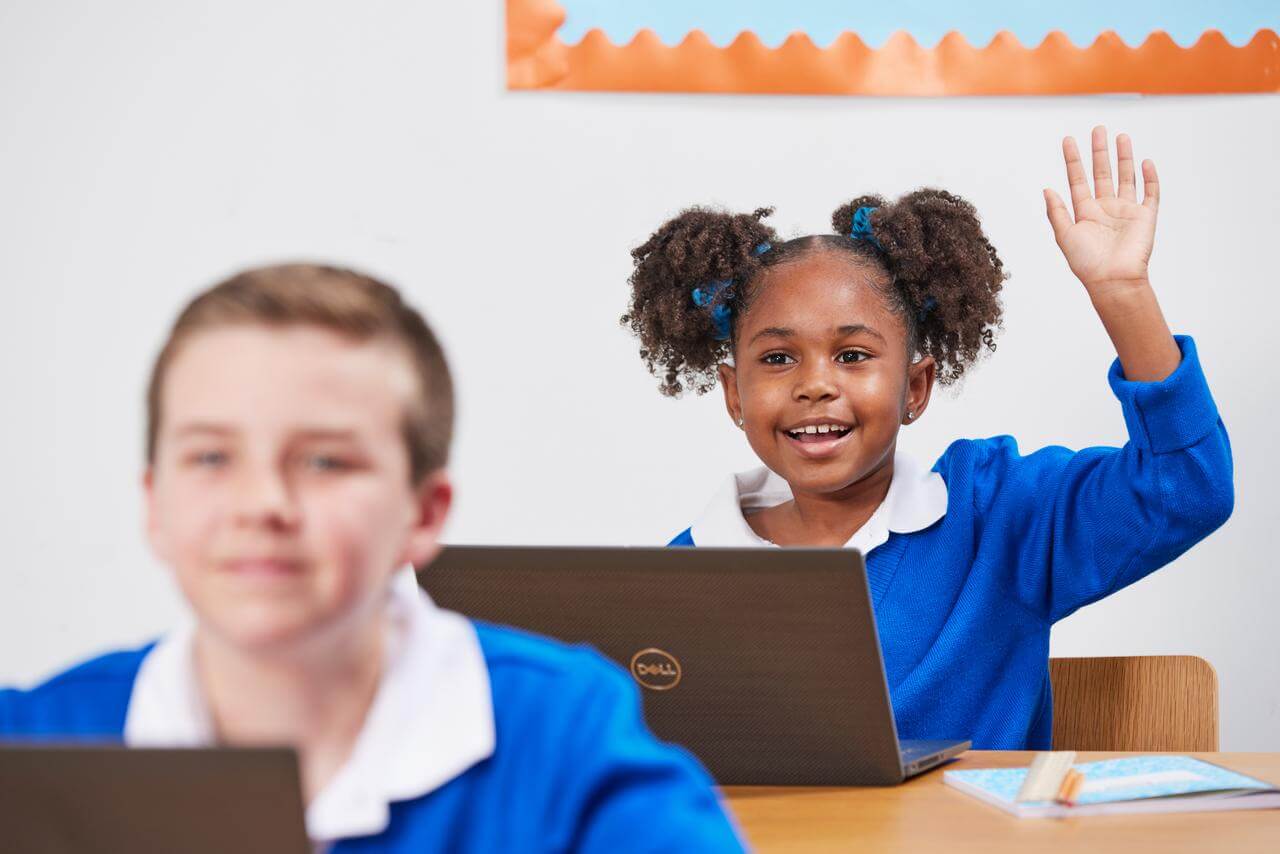Published on June 13th, 2022
Computing Games For Interactive Whiteboards
16 minute read

Computing skills are valued in almost all workplaces, so understanding how they work and how to operate them efficiently can be a valuable skill to have when leaving school.
Computer science is essential for many industries, including computer programming, software development, games programming, software engineering, etc.
Learning programming skills, theoretical concepts, and artificial intelligence will also help students wishing to work in the gaming industry.
Making lessons enjoyable and engaging for students can make a big difference in exam results. One great way for teachers to do this is by incorporating games into the students’ learning experience.
Having the opportunity to display games on an interactive whiteboard can also ensure all the students can see and learn from them.
This article will look at some of the best computing game options for Key Stage 2, Key Stage 3, and Key Stage 4 students, giving them the knowledge and skills necessary to progress in computing.
Computing Games For KS2
Allowing students to learn skills from an early age will enable them to get the basics down by the time they need to decide if they want to pursue the subject.
Key Stage 2 typically covers children from 7 to 11 during years 3, 4, and 5.
The following games and resources are designed to benefit students of this age as they learn basic computing skills.
BBC Bitesize Computing
Parents or students looking for a free study resource will love BBC Bitesize, and it has something for all Key Stages, supporting students from the age of 5 when they first start school to 16+ when studying for their final exams.
BBC Bitesize contains guides designed and written by teachers and experts and has many excellent online learning tools. The resource carries information, study guides, and games for all subjects on the curriculum.
The information for computing covers everything from explaining what computer science is to how we get computers to do what we want and the internet, algorithms, and digital data.
With social media and mobile devices being significant parts of many people’s lives, guides explaining how to make a good app are a great way to grab students’ attention.
The games on Bitesize are developed to be engaging and informative. For example, the Dance Mat Typing game helps students practise typing in a fun way, gradually increasing in difficulty until the user has learned valuable keyboard skills.
Star Wars Blocks
Star Wars Blocks is a fun, interactive experience that takes students through the basics of coding. Using the famous Star Wars franchise to teach students is a great way to keep them engaged.
It is free to use, and there are a number of courses to enjoy and learn about computer science.
Kodu Game Lab
Another great site that helps kids learn more about programming is Kodu Game Lab. Here, students will learn more about 3D game development.
Finding relatable material for students is key to keeping them interested. With this option, students will learn how the worlds in their favourite games are built, how characters are created, and how game rules and character behaviours can be dictated.
Make Your Own “Flappy Bird”
After its release in 2013, the Flappy Bird game enjoyed unprecedented success. This led to a series of similar games and apps that developers hoped would go viral.
Now, students can learn how to make their own flappy birds game at studio.code. Students will learn the basic coding needed to create games like this.
Teachers presenting this on interactive whiteboards and even allowing students to play will help make the learning environment fun and enjoyable for all involved.
Computing Games For KS3
Key Stage 3 covers students aged 11 to 14 years and are studying in years 7, 8, and 9. The following games and resources are suitable for students in the KS3 category.
Code Combat
Learning code is a valuable skill for anyone interested in computing. Code Combat is a great way to learn through a series of games.
By playing the games and advancing, students will learn about all aspects of coding.
Their Ozaria Classroom resource is designed for teaching. Lesson slides that students can see on interactive displays and teacher notes make it easy to plan and deliver fun and informative lessons.
KS3 BBC Bitesize
As students develop, so should their learning experience. KS3 BBC Bitesize is aimed at students in Key Stage 3 and covers a range of topics, including;
- Computational Thinking
- Programming
- Algorithms
- Hardware
- Software
- Data Representation
- Online Safety
- Ethics
- Law
- Internet Communication
These are just some of the essential topics covered, and having access to them can greatly benefit a student’s learning.
With a huge collection of resources available for all subjects, including computing, BBC Bitesize is one of the best free resources available. The guides, games, and advice provided are designed for all ages, with all Key Stages catered for.
This allows students to use the resource from an early age, growing and moving on to different resources. Having this information provided in one free space offers students from all backgrounds the stability and knowledge they need to excel in their chosen subjects.
Scratch
Scratch allows students to create animations, games, and stories and share them with other users worldwide.
There are excellent resources for educators and parents, and with an extensive range of fun projects for students to work on, this is a great option that will keep them easily engaged.
Computing Murder Mystery
When it comes to fun and informative computer science games for students aged between 11-14, this Murder Mystery game is an excellent choice.
Thanks to the clear and concise teacher notes explaining the game and how to run it, the game is entirely free and perfect for the classroom.
To quiz suspects, students have to answer a collection of computer science questions, helping them solve the case. It is the perfect way to review what has been learned in a class and makes a fun, interactive way to finish a course.
The interactive PowerPoint presentations are perfect for interactive whiteboards and displays and are used in conjunction with handouts that allow students to review and retain lessons learned throughout the year.
Computing Games For KS4/GCSE
Key Stage 4 students typically range from 14 years of age to 16. KS4 covers Years 10 and 11 when students are studying for their GCSEs. The following games and resources are suited for students of this age.
Computer Science Guru
When visiting Computer Science Guru, you will choose from various topics, including theory, quizzes, glossary, downloads, and GCSE+ tips.
Computer science theory gives you an excellent choice of computer science topics to browse and learn. Test your knowledge with fun quizzes covering the following topics;
- Problem Solving
- Algorithm Design
- Automated Tech
- Emerging Tech
- Boolean Logic
- Computer Ethics
- Cyber Security
- Data Compression
- Data Storage
- Databases
- Hardware
- Software Development
- Software Engineering
- Data Transmission
- Networks
- Number Systems
- Programming
- The Internet
The computer science glossary is an invaluable resource. Browse the A-Z to learn all the computer science terms you will likely encounter or refer to when unfamiliar with something.
The download shop offers students the opportunity to purchase worksheets and cheat sheets for various topics. Prices vary from £1.00 to £3.50 depending on the topic.
The GCSE tip section redirects you to GCSE.guru, where students can learn all about exam preparation, tips on how to revise efficiently, what will happen on your exam day, and how to cope with the stresses of exams.
Revise Computer Science
The Revise Computer Science site comprises three zones that help students revise for exams and retain the information they learned in class.
The first section is the Learning Zone, and students are provided with computer science lessons on video, flashcards, and notes. The information provided is designed for GCSE students and is easy to work through and navigate.
After completing the Learning Zone, the Quiz Zone is a fun, interactive way to test yourself and check your progress. The randomly selected questions come from the site’s extensive bank of questions, meaning you won’t know what is coming next, no matter how many times you take them.
The final zone is the Analytics Zone. This is great for students that want to check how far they have come. They will be able to analyse their study and quiz performance, which will improve confidence in the aspects the student is excelling in while flagging up specific areas that need more study.
Students can choose from the free, Lite version that offers lessons, notes, quizzes, and a point/badge system, or pay £5 for the premium course.
The premium Revise Computer Science program offers students everything the lite version does, interactive presentations, helpful revision notes that can be printed, online and printable flashcards, and more quiz options, including multiple-choice, Analysis, monitoring, and tracking.
A teacher option also allows educators to create groups and track students’ progress. The teacher options are available in free and premium options depending on the teacher’s preference.
How Can Games Help With Your Computing Lessons?
The traditional teaching methods of sitting behind desks, reading textbooks, and being lectured by teachers are being replaced by finding ways to help students enjoy lessons. Incorporating technology, especially in the form of interactive educational games, is proven to improve engagement and knowledge retention.
Games can help increase students’ motivation when taking part, paying attention, and learning. They improve students’ ability to work in a team and enhance their critical thinking.
As well as helping improve the student’s knowledge of a subject, it will show them how to be controlled in their competitiveness. Competition can be a great motivator, but not if it causes arguments and upset.
Many classroom games are strategy-based, which improves mental cognition and is excellent for computer sciences. It will also improve confidence in students that might not have been comfortable putting their hand up and answering questions in class but are happy to participate in games.
Gaming in class can also help students retain the information being taught and improve their overall memory. Most of all, games in class are an excellent way for students to enjoy their learning experience. Whether they are in class using interactive displays or enjoying the great outdoors, it can be something to look forward to while they learn.
Getting The Most Out Of Interactive Computer Science Games
It might sound easy, but it can be pretty challenging to ensure the computer games played in classrooms benefit the students. There are many ways to improve students’ overall experience when games are introduced in class.
The first thing to remember is that structure and planning can play a massive part in ensuring all students are engaged, participating, and can see the information they need to enjoy the game.
Interactive whiteboards are the perfect way to display games and ensure everyone can participate. Understanding the games you want your students to experience is also essential. This way, you can answer any questions they have and offer help if needed.
Making sure your students understand their boundaries is another critical factor in getting the most from computer games. It can be easy for students to forget they are in a learning environment when playing games. Making sure they enjoy themselves but still act responsibly will help them learn the lessons from teaching software development and games development.
Bring Your Lessons To Life With An Interactive Display
One of the most challenging aspects of teaching is keeping your students interested. Most subjects will incorporate some textbook work, which is inevitable, but breaking this up with interactive, fun lessons can be a great way to keep your students entertained while educating them.
Practical experiences and practical exercises help prepare school students for student life if they pursue higher education in related courses. Project management, games development, learning computer systems, analytical techniques, and practical understanding are all improved by this kind of classroom experience.
Interactive displays can be a great way to engage students. Interactive displays allow all students to see what is being taught to learn by example. Introducing educational games and displaying them on interactive whiteboards will also help to keep students interested and help them learn.
Our displays are the ideal way to teach students in a modern classroom. Be sure to check out our range of interactive classroom products to enhance your students’ learning today. You can even book a free live demo of the Promethean ActivPanel!




